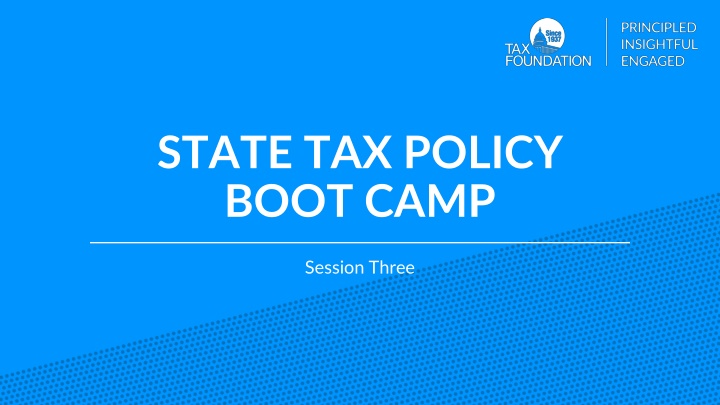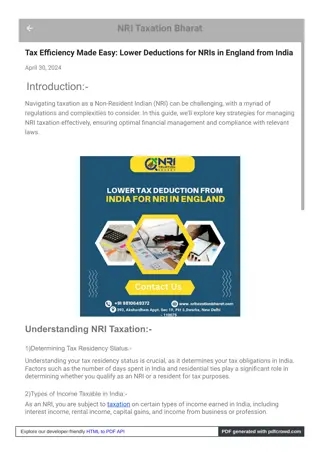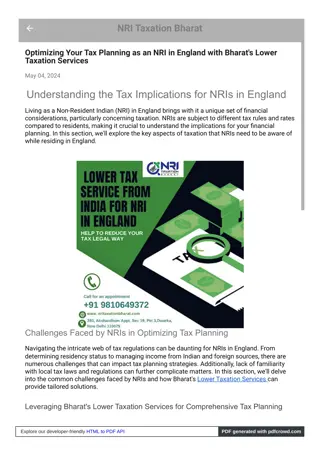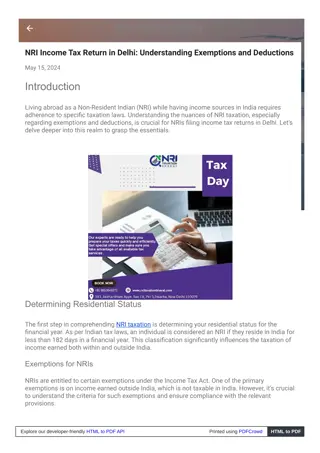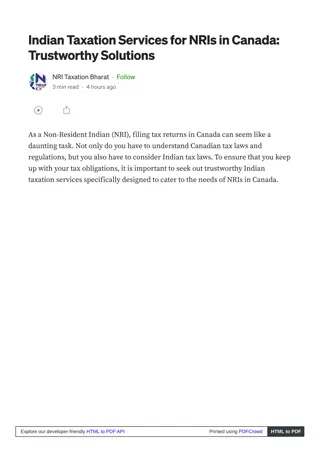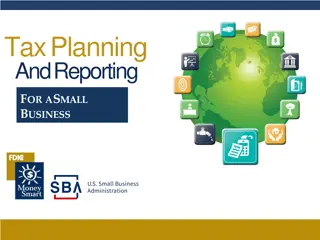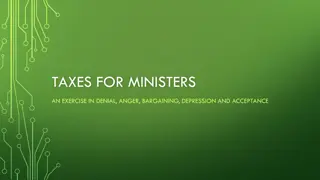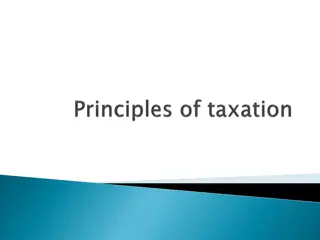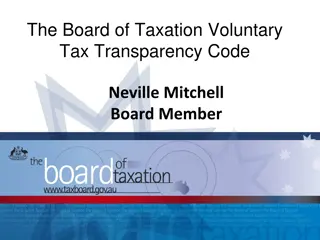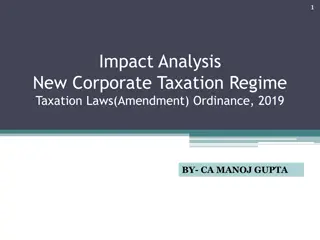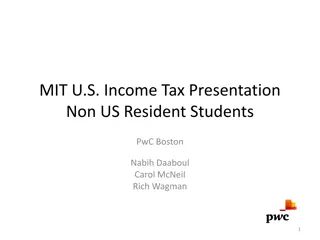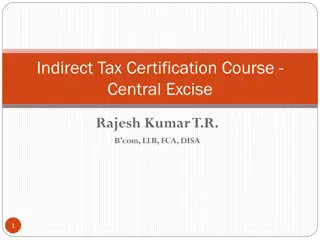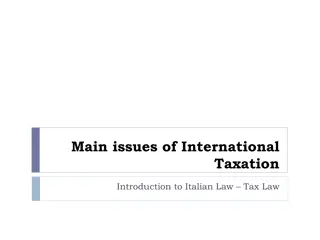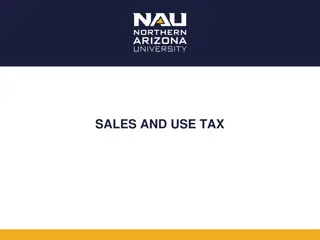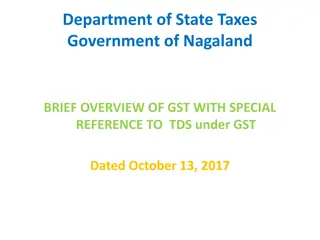Employee Taxation Insights: State Tax Policies & Obligations
Navigate through the complexities of employee taxation - from state tax policies governing income sources to filing and withholding obligations. Uncover the impact of convenience rules and delve into four common scenarios employees face when it comes to tax compliance.
Download Presentation

Please find below an Image/Link to download the presentation.
The content on the website is provided AS IS for your information and personal use only. It may not be sold, licensed, or shared on other websites without obtaining consent from the author.If you encounter any issues during the download, it is possible that the publisher has removed the file from their server.
You are allowed to download the files provided on this website for personal or commercial use, subject to the condition that they are used lawfully. All files are the property of their respective owners.
The content on the website is provided AS IS for your information and personal use only. It may not be sold, licensed, or shared on other websites without obtaining consent from the author.
E N D
Presentation Transcript
STATE TAX POLICY BOOT CAMP Session Three
EMPLOYEE TAXATION WHO CAN TAX YOUR INCOME? Standard Treatment Domiciliary State: all income from all sources, with credits for taxes paid to other states (includes unearned income) Other States: income earned in or sourced to the state (excludes most unearned) Notable Variations Reciprocity Agreements Treatment of Military / Expat Income Convenience Rules (create double taxation) @TaxFoundation TAX FOUNDATION
EMPLOYEE TAXATION FILING AND WITHHOLDING OBLIGATIONS Most states require an individual to file if they work in-state for even one day and earn any amount of income there Most states also have withholding obligations for employers when employees travel for work, or work out- of-state Filing and withholding thresholds, where they exist, do not always align A filing requirement does not necessarily Source: Mobile Workforce Coalition mean that the taxpayer has any actual tax liability in a given state @TaxFoundation TAX FOUNDATION
EMPLOYEE TAXATION CONVENIENCE RULES Convenience of the Employer Rules impose income tax liability where your office is, regardless of whether you set foot there Often negates your home state s credit for taxes paid to other states due to sourcing definitions Imposed in seven states: Arkansas, Connecticut, Delaware, Massachusetts, Nebraska, New York, and Pennsylvania Potentially violate Dormant Commerce Clause Leads to either double taxation or the deprivation of revenue to one s home state @TaxFoundation TAX FOUNDATION
EMPLOYEE TAXATION FOUR SCENARIOS Scenario #1: Commuter Scenario Live in one state and work in another Scenario #2: Business Travel Scenario Live and work in one state but sometimes conduct work elsewhere Scenario #3: Telework Scenario Live and remotely work in one state for an employer in another state Scenario #4: Pandemic Relocation Scenario Remotely work in multiple states during the pandemic @TaxFoundation TAX FOUNDATION
EMPLOYER TAXATION NEXUS AND APPORTIONMENT Having even one employee work remotely in another state can establish taxable nexus that could create millions in corporate tax liability These policies could get some states blacklisted as remote work locations Some states have temporarily waived certain nexus provisions during the pandemic Remote workers also change apportionment, primarily in states where services are sourced based on Cost of Performance (CoP / IPA) @TaxFoundation TAX FOUNDATION
LOOKING AHEAD THE FUTURE OF REMOTE WORK Increased mobility enhances the significance of tax and other forms of state competitiveness The Great Re-Sorting: Being increasingly untethered from the geography of the job market allows people to locate based on other preferences The Great Unbundling: taxpayers have greater opportunities to choose locations that offer the mix of amenities and taxes they favor; location less of a package deal An era of greater mobility creates risk for many major metropolitan areas, which must balance potential revenue losses from outmigration against revenue offsets that increases outmigration State tax policy has always mattered, but the rise of remote work brings tax burdens and economic competitiveness to the forefront @TaxFoundation TAX FOUNDATION
